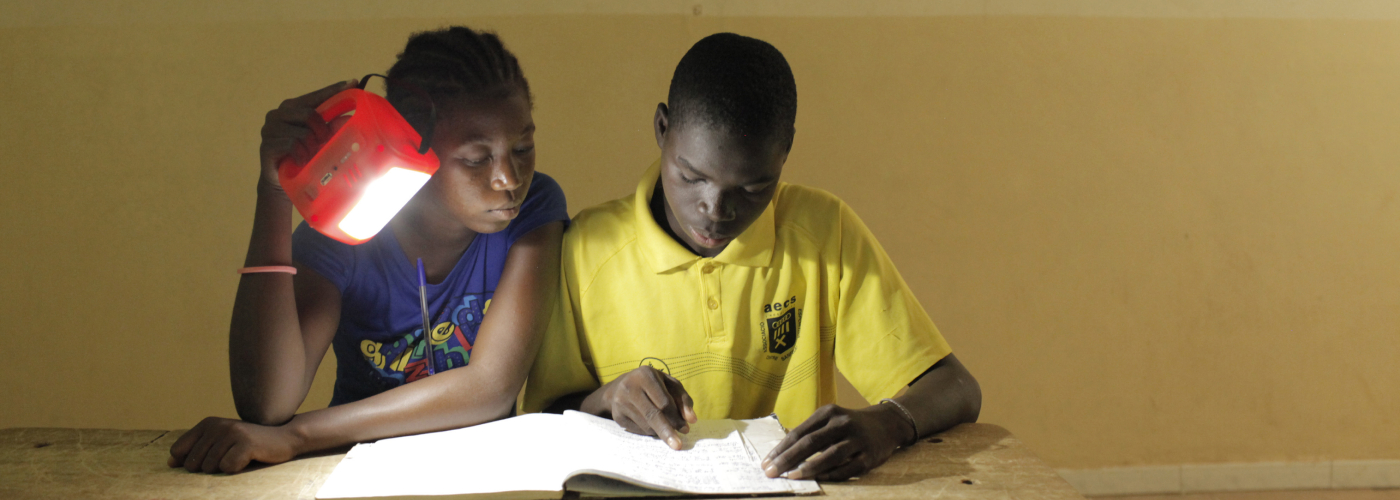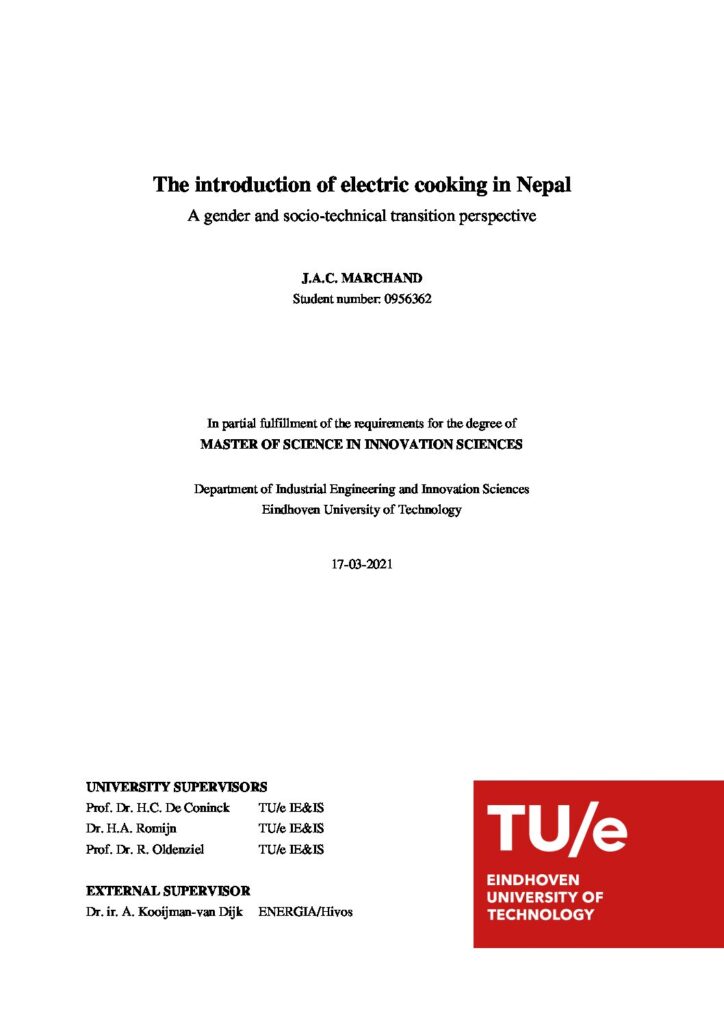In Nepal, 70.4% of the population does not use clean cooking fuels. Electric cooking could benefit the main users (women) by reducing the negative health effects brought by burning solid biomass and saving time by the efficient nature of cooking on induction stoves. However, gender norms prevent women, the main users, from making investment decisions that can benefit their health, such as acquiring a clean cookstove. By drawing on transition theories and gender theories, this thesis aims to give practical and policy recommendations by investigating an induction stove intervention program in Temal, Nepal, from these two perspective.
This research demonstrates that transition theories can be helpful in trying to advance the world towards a more sustainable future by identifying barriers and drivers for accelerating clean cookstove adoption. However, failing to consider gender inequalities within these sustainability transitions might mean missing out on analyzing a crucial part of socio-technical transitions. By confirming and extending the literature on barriers and drivers for clean cookstove adoption to include evidence on induction stoves, three recommendations are given: 1) using networks to increase knowledge diffusion; 2) providing financial incentives to empower women and reduce the inequalities present in the clean cooking transition; and 3) making use of and improving existing knowledge and infrastructure. This might help accelerate the transition towards clean cooking in Nepal.
Author: Julie A.C. Marchand
In partial fulfillment of the requirements for the degree of MASTER OF SCIENCE IN INNOVATION SCIENCES








